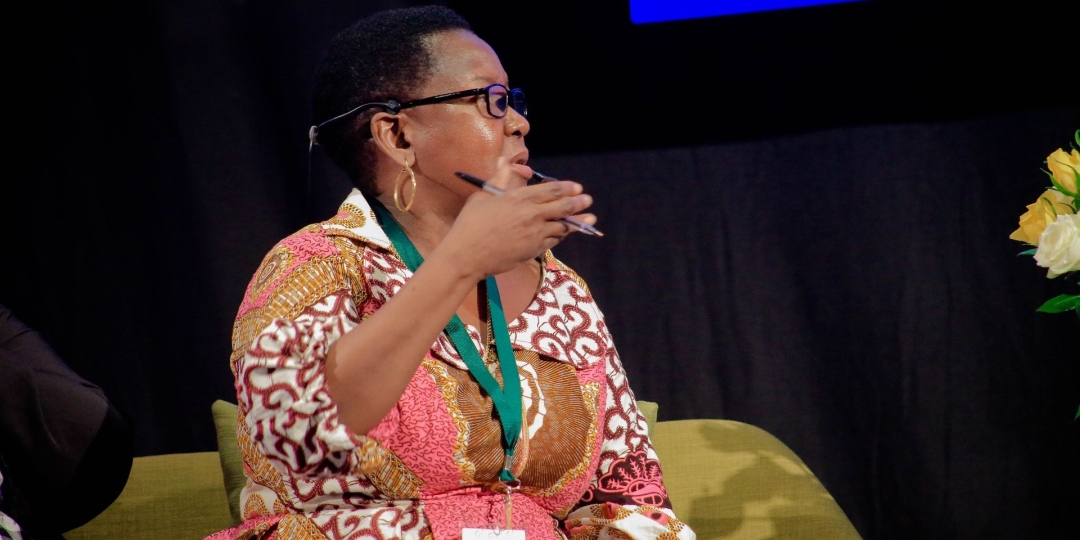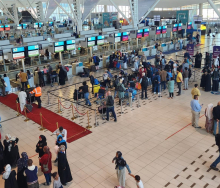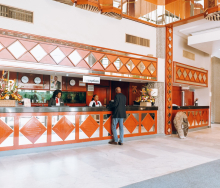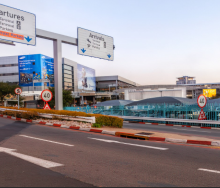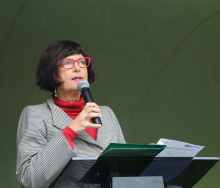Providing quality education for youth in the tourism sector remained at the forefront of the Africa Youth in Tourism Innovation Summit and Challenge in Namibia this week, with increased calls for collaboration between educational institutions and the private sector.
In the ‘Unpacking the Future of Work Focused Learning’ panel discussion, which elaborated on ‘equipping the youth with quality education, training and skills that meet the market’s needs’, tourism educational experts discussed problems and possible redesigns of tourism’s educational systems, as well as the future of the industry.
Problems in the system
Sonto Mbonambi, CEO of the Small Tourism Enterprise Association in South Africa, highlighted the following issues in the tourism education system:
-
Public training institutions cannot keep up with the sector growth or develop access, and governments prioritise investment infrastructure rather than the supply of skills.
-
The training curriculum is outdated and often focuses on theoretical skills rather than practical skills.
-
The positions available are not attractive enough regarding wages, career progression and benefits for trainers to start a career in tourism.
-
Enterprises struggle to find or replenish staff, particularly the most qualified workers.
Mbonambi stressed the need to build capacity for future generations of tourism managers, leaders and entrepreneurs.
Redesign?
‘What should educational institutions do to redesign and offer a curriculum that will make learners relevant straight after school?’ was the question that was posed to the expert panellists.
Mamello Mofokeng, Co-Founder and CEO of sector-agnostic solutions agency, Saturated Africa, said it depended on the institution itself.
“There are private institutions that offer hospitality qualifications, for example, that give students the relevant skills or what they need to know. But the most important is to get practical skills – to learn by doing. As much as the institution can give learners what they need, it is up to them to get the practical training. They need to position themselves in a place where a qualified person is going to teach them what is relevant to the industry. In that way they will be able to grow.”
Devota Mdachi, Lecturer at the National College of Tourism in Tanzania, said her institution looked at what the industry needed, and not what the institution wanted.
“We had to review our curriculum to incorporate the latest developments so that we could meet the market’s demands. We teach entrepreneurship, leadership, financial management – so many things that could build them that they were not taught at school. By doing so they began to excel.”
Maipato Mmako, Lecturer, Co-ordinator and Learning Development Facilitator at the University of Johannesburg, said the core skills mentioned by Mdachi needed to be introduced in educational institutions so that by the time students graduate, they are market-ready. “We also need to teach students to take initiative themselves.”
Partnerships
Mmako added that there had to be a balance between educational institutions and the private sector if jobs were to be sustained.
“It’s one thing to look at preparing these young people to go into the industry, but we also need to turn the tables around for the companies as well to be ready to receive these young students in their space. There has to be a balance.”
Mbonambi added that such partnerships would allow tourism employment to flourish.
“Partnerships between educational institutions and private companies allow for increased mutual benefit in the form of exchange of knowledge. These partnerships not only offer job opportunities for students, but also help them flourish in the long term after graduation.”
Mdachi believes that role models in the private sector would encourage youth to gain even more knowledge on how to succeed in the tourism industry.
“Mentorship is not only about the role of the government or the institutions, but also the private sector – that is really where they need to get the practical skills from. At our college we have such programmes whereby we invite champions in the industry to talk to the youth and they tell them their stories. In this way the youth get first-hand information on what practical experience such a person has and what they have to do to reach that level. We need to give them people they can look up to.”
Future of the tourism sector
Mofokeng said the tourism sector needed to adapt if it was to thrive in the future, but youth could also start to gain knowledge by doing research themselves.
“We saw what happened with COVID. It closed a lot of doors, but opened a lot at the same time. We have a lot of access to opportunities – this Summit is an example. We all came to share knowledge or to gain knowledge. For the youth, it is as easy as opening their laptop or phone, utilising AI tools and upskilling themselves so that they are exposed to more opportunities. Youth need to be open to growing, keeping track of what skills are in demand, and getting a lot of mentorship. Push yourself – jump in the water and swim. It is a matter of being open-minded. Jobs are not what they were yesterday and youth need to be ready for tomorrow.”
Mdachi said the future for tourism was very promising, although a succession plan was crucial for its survival.
“We are here in Namibia engaging the youth. We are here preparing for their future and not our present. Through our mistakes the youth will be able to build a brighter future and a better Africa. We need to set up a succession plan. Most governments, institutions and companies do not have succession plans for tomorrow. Who is going to take up your position when you leave? Who is going to take over your company when you’re gone?”
Mmako noted that following trends was a good indicator of tourism’s future, and that technology was a big part of that.
“We cannot predict the future, but we can follow trends to guide what the will future look like in terms of future work in tourism. Emerging trends that we are picking up in tourism are that sustainability is a trend growing now, and Africa being rich in natural resources and cultural heritage. There is a need for conscious travellers where people are not travelling for the sake of leisure. They want to be involved in cultural immersion and community development.
“When we talk about future work in tourism, we also have to talk about technological advancement, where we teach young people within the sector about the different opportunities that are there. Social media and digital marketing should be introduced within the tourism sector. This opens doors and creates opportunities for young people within Africa.”
Mbonambi concluded by imploring the youth to take tourism seriously. “Often students simply take up tourism because they want to pass because they heard tourism is ‘an easy way to get a qualification’. That doesn’t give a good idea of what tourism is. There are good careers in tourism where students can become leaders and big entrepreneurs.”
